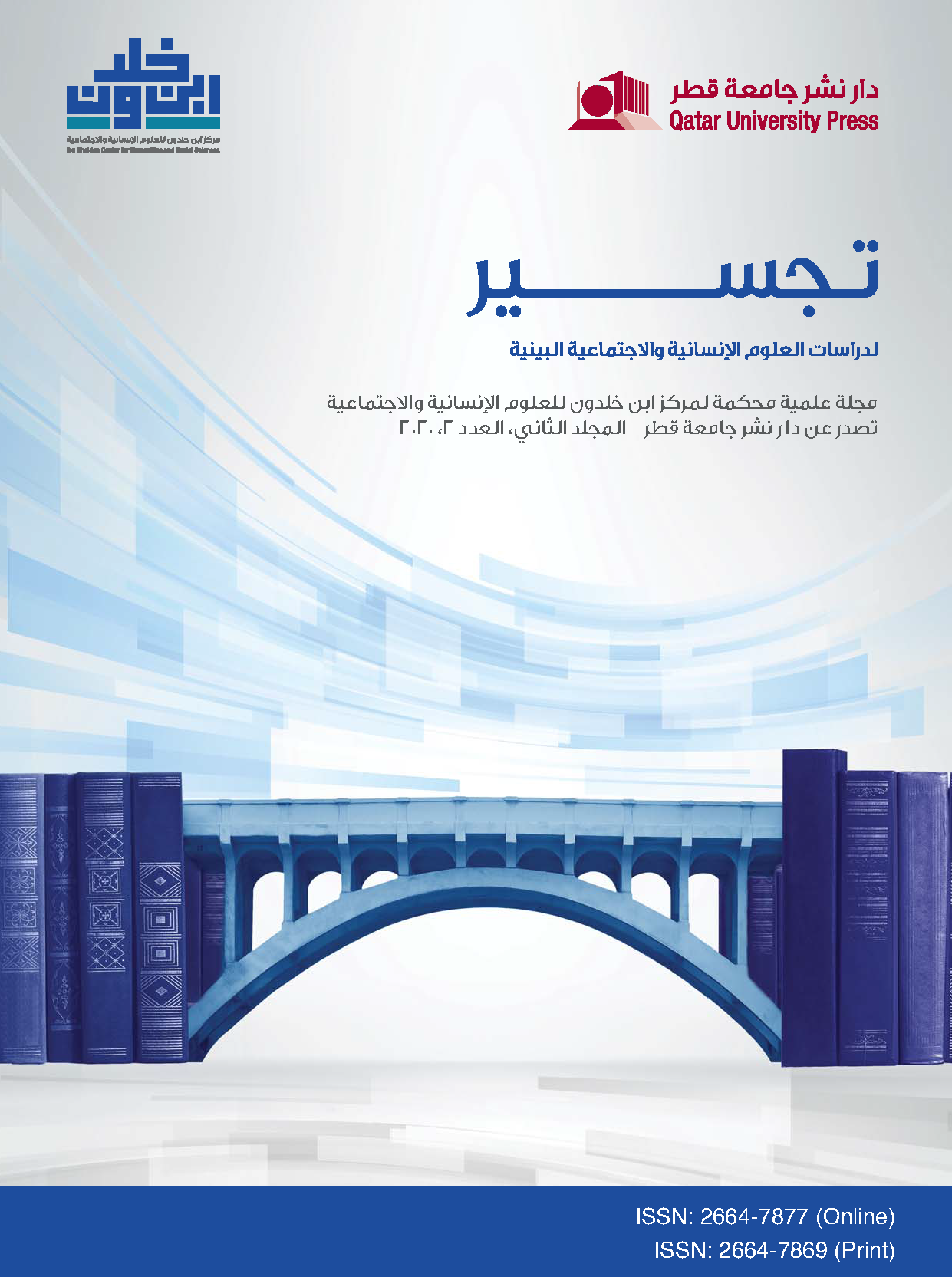المقاربات عبر اللغوية والديكولونيالية في بناء المعنى
الملخص
يقوم هذا المقال بفحصٍ ومساءلةٍ ديكولونيالية لقضية التسلسل الهرمي ذي الأبعاد اللغوية والاجتماعية التي تسم فهرسة الإرث الإمبريالي في تاريخ الولايات المتحدة بصفة عامة، ويسائل بالأساس هذا التسلسل في الكتابة والبلاغة خصوصًا. وتسعى هذه المساءلة إلى تجاوز وإبطال افتراض أن اللغة الانجليزية هي اللغة الوحيدة في صنع المعرفة. ويستند الفهم الديكولونيالي عند إلين كاشمن إلى عدِّ اللغة هويات محايثة تمثل وجود الكائنات البشرية وتجسدها وليس كونها فقط أشياء مملوكة، مما يستوجب التفكير بجدية من لدن العلماء والباحثين في بلورة الإمكانيات المنهجية والتربوية التي يمكن أن يوفرها تفعيل ديكولونيالية العبر لغوية المعرفية. وباستلهام منظور والتر منيولو بخصوص فك الارتباط المعرفي مع الحداثة الإمبريالية، تسعى كاشمن من خلال رؤية عبر لغوية ديكولونيالية للكتابة والبلاغة والبحث والتدريس التي تشرك الدارسين والطلاب في بناء المعنى من أجل تغيير العقائد التخصصية والطرائق التربوية ومحتويات الحقول المعرفية والقواعد المتحكمة فيها، وذلك بهدف تسوية وإبطال التسلسلات الهرمية اللغوية والسيميائية والمعرفية والاجتماعية التي يستند إليها الإرث الإمبريالي للفكر والفعل، القائم على تعزيز ودعم وتكريس القوالب الاستعمارية للسلطة.
المقاييس
##plugins.themes.bootstrap3.article.details##
التسلسل الهرميالإرث الإمبريالياللغة الإنجليزيةبناء المعرفةرؤية عبر لغوية ديكولونياليةديكولونيالية المعرفةديكولونيالية الوجود
Baca, Damian & Victor Villanueva. Rhetorics of the Americas. New York: Palgrave Macmillan, 2012.
Bawarshi, Anis. “Beyond the Genre Fixation: A Translingual Perspective on Genre.” College English. vol. 78, no. 3 (2016).
________. Genre and the Invention of the Writer: Reconsidering the Place of Invention in Composition. Logan: Utah State University Press, 2003.
Berry, Patrick W., Gail E. Hawisher & Cynthia L. Selfe. Transnational Literate Lives in Digital Times. Logan: Computers and Composition Digital Press/ Utah State University Press, 2012.
Campano, Gerald, Maria Ghiso & Lenny Sanchez. “‘Nobody knows the . . . amount of a person’: Elementary students critiquing dehumanization through organic critical literacies.” Research in the Teaching of English. vol. 48, no. 1 (2013).
Canagarajah, Suresh (ed.). Translingual Practice: Global Englishes and Cosmopolitan Relations. New York: Routledge, 2013.
Cushman, Ellen. The Cherokee Syllabary: Writing the People’s Perseverance. Norman: University of Oklahoma Press, 2011.
De Costa, Peter. “Reconceptualizing Cosmopolitanism in Language and Literacy Education: Insights from a Singapore School.” Research in the Teaching of English. vol. 49, no. 1 (2014).
Feldman, Ann. Making Writing Matter: Composition in the Engaged University. Albany: State University of New York Press, 2009.
Greene, Jamie Candeleria. “Misperspectives on Literacy: A Critique of Anglocentric Bias in Histories of American Literacy.” Written Communication, vol. 11, no. 2 (1994).
Guerra, Juan C. “Translingualism and Close Reading.” College English. vol. 78, no. 3 (2016).
Horner, Bruce, Min-Zhan Lu & Paul Kei Matsuda (eds.). Cross Language Relations in Composition. Carbondale: Southern Illinois University Press, 2010.
Rebecca Lorimer Leonard & Rebecca Nowacek. “Transfer and Translingualism.” College English. vol. 78, no. 3 (2016).
Lu, Min-Zhan, and Bruce Horner. “Introduction: Translingual Work.” College English. vol. 78, no. 3 (2016).
Matsuda, Paul Kei. “The Lure of Translingual Writing.” PMLA. vol. 129, no. 3 (2014).
May, Stephen. Language and Minority Rights: Ethnicity, Nationalism and the Politics of Language. 2nd ed. New York: Routledge, 2011.
McCarty, Teresa L. & Tiffany S. Lee. “Critical Culturally Sustaining/Revitalizing Pedagogy and Indigenous Education Sovereignty.” Harvard Educational Review. vol. 84, no. 1 (2014).
McCarty, Teresa L. & Sheilah E. Nicholas. “Reclaiming Indigenous Languages: A Reconsideration of the Roles and Responsibilities of Schools.” Review of Research in Education. vol. 38, no. 1 (2014).
Mignolo, Walter D. “Delinking: The rhetoric of modernity, the logic of coloniality and the grammar of de-coloniality.” Cultural Studies, vol. 21, no. 2 (2007).
———. The Darker Side of the Renaissance. Ann Arbor: University of Michigan Press, 2003.
———. The Darker Side of Western Modernity: Global Futures, Decolonial Options. Durham: Duke University Press, 2011.
Perryman-Clark, Staci M. “African American language, rhetoric, and students’ writing: New directions for SRTOL.” College Composition and Communication, vol. 64, no. 3 (2013).
Richardson, Elaine B. African American Literacies. London: Psychology Press, 2003.
Shipka, Jody. “Transmodality in/ and Processes of Making: Changing Dispositions and Practice.” College English. vol. 78, no. 3 (2016).
Tlostanova, Madina V. & Walter D. Mignolo. Learning to Unlearn: Decolonial Reflections from Eurasia and the Americas. Columbus, OH: The Ohio State University Press, 2012.
Trimbur, John. “Translingualism and Close Reading.” College English. vol. 78, no. 3 (2016).
Villanueva, Victor. “‘Memoria’ Is a Friend of Ours: On the Discourse of Color.” College English. vol. 67, no. 1 (2004).
Wetzl, Ana Maria. “World Englishes in the Mainstream Composition Course: Undergraduate Students Respond to WE Writing.” Research in the Teaching of English. vol. 48, no. 2 (2013).
Young, Vershawn & Aja Y. Martinez (eds.). Code-Meshing as World English: Pedagogy, Policy, Performance. Urbana: National Council of Teachers of English, 2011.


